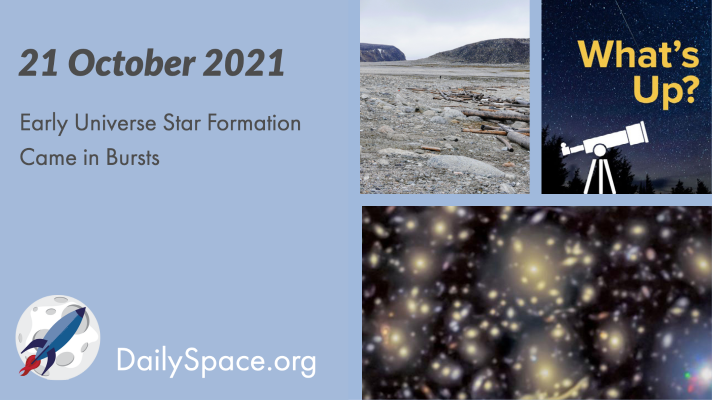
Oct 22, 2021 | Climate Change, Daily Space, Earth, Galaxies, Globular Cluster, Mars, Moon, Science, Sky Watching
Researchers looked at lensed galaxy systems, searched for nearby analogs to those distant systems, and found that in general, the systems showed signs of bingeing star formation and then quiet lulls. Plus, using tree rings to track Arctic ice changes, and this week’s What’s Up.
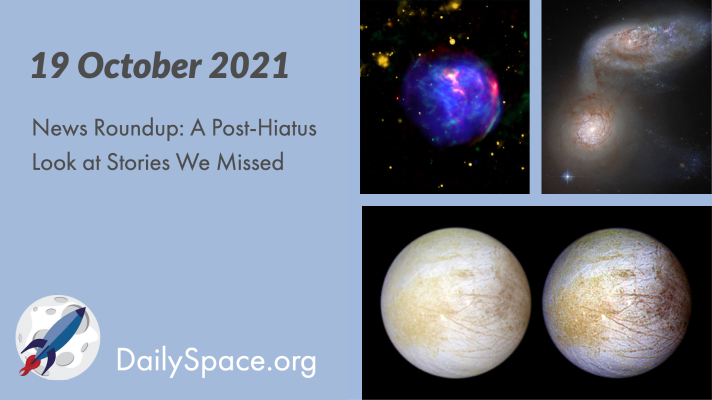
Oct 20, 2021 | Asteroids, Daily Space, Globular Cluster, Jupiter, Lucy, Our Solar System, Spacecraft, Supernovae, Titan
Today we whirl through some of the stories that happened last week while we were on hiatus, including pretty images of two galaxies merging and a lovely supernova, as well as news about moons Europa and Titan. Plus, we interview Dr. Julie Rathbun, a senior scientist at the Planetary Science Institute.
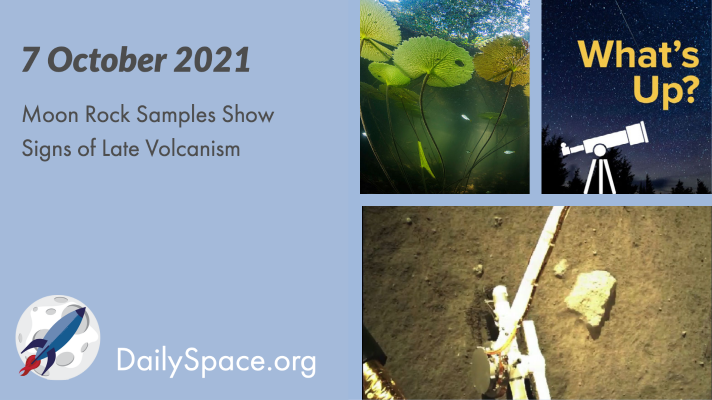
Oct 8, 2021 | Active Galaxies, Climate Change, Comets, Daily Space, Earth, Mercury, Moon, Sky Watching, Spacecraft, Stars
An analysis of the most recent sample taken from the Moon and returned by the Chang’e-5 mission shows that the basaltic rock is about two billion years old. This age implies a previously unknown heat source in the region. Plus, how plants and animals record climate change and this week’s What’s Up.
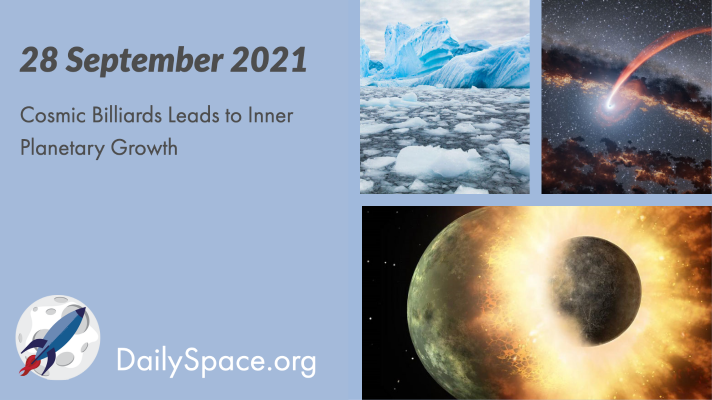
Sep 29, 2021 | Black Holes (Stellar), Climate Change, Daily Space, Earth, Mars, Mercury, Moon, Our Solar System, Stars, Venus
The inner solar system was a wild and wooly place as the planets were forming, and new research shows that the collisions that formed Earth and Venus were likely of the hit-and-run variety. Plus, polar ice loss warps the planet, and a black hole eats a star.
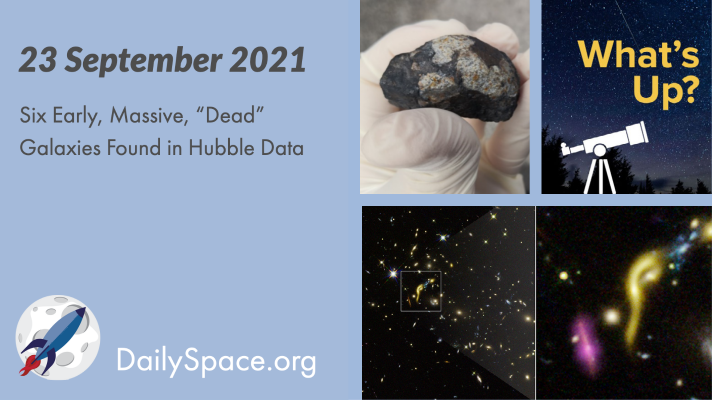
Sep 24, 2021 | Asteroids, Daily Space, Earth, Galaxies, Mars, Moon, Neptune, Observatories, Rovers, Sky Watching, Supernovae, Uranus
While searching for objects deep in the universe’s history, at about three billion years of age, researchers found six massive but “dead” galaxies in Hubble and ALMA data, a strange finding for a time period known for prolific star birth. Plus, planetary science from the EPSC2021 conference and this week’s What’s Up.
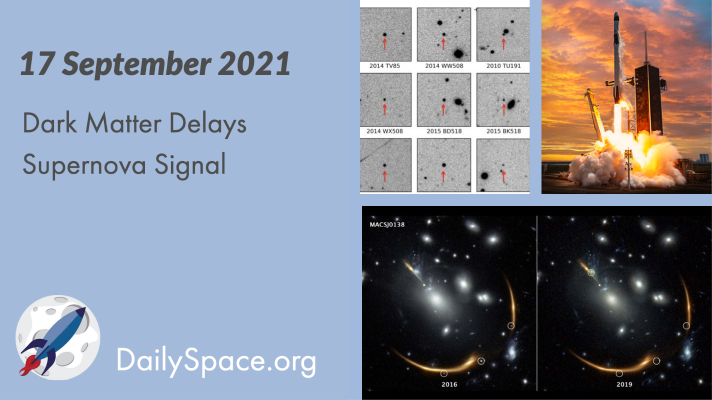
Sep 20, 2021 | Asteroids, Climate Change, Comets, Cosmology, Crewed Space, Daily Space, Dark Matter, Earth, Galaxies, Review, Space China, Spacecraft, SpaceX, Supernovae
A supernova first observed in 2016 will be replayed in a few years because of the light’s journey through a galaxy cluster and how dark matter gravitationally warps space-time. Plus, inactive centaurs, a Scottish ice wall, and a review of “Countdown: Inspiration4 Mission to Space”.








 We record most shows live, on Twitch. Follow us today to get alerts when we go live.
We record most shows live, on Twitch. Follow us today to get alerts when we go live.